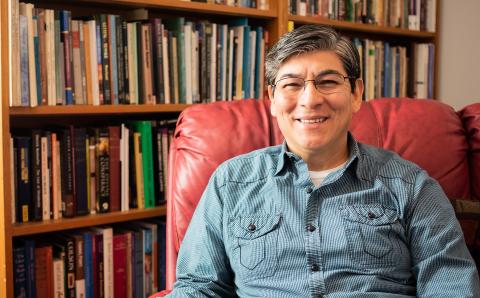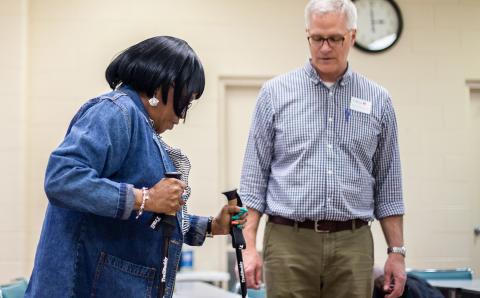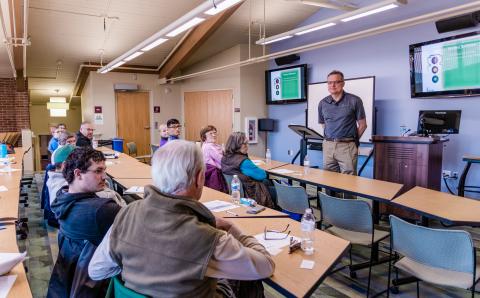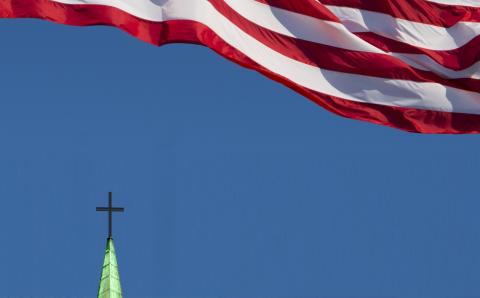I am pleased that Synod 2019 declared the teachings of Kinism as heresy. Kinism teaches that God requires racial separation in all areas of societal life, and hence, forbids interracial marriage, and even transracial adoption. It is essentially Apartheid 2.0. A former Christian Reformed Church pastor espoused it and took his congregation with him in leaving the denomination. Delegates at synod cautioned that this is not an isolated incident but even a common sentiment among some CRC churches.
This issue with Kinism is personal for me, as I am in an interracial marriage. I am Chinese ethnically, and my lovely wife, Martha, is Dutch ethnically, born and baptized in the CRC. According to Kinism, our marriage is contrary to God’s will. What, therefore, does that make of our three daughters? You will forgive me if Kinism makes me bristle.
Ironically, it was through God’s providence that I met my wife in the first place. Born in Malaysia, I only ended up as a foreign student in Edmonton, Canada, because every other university—in Malaysia and abroad—rejected my application for admission. God closed every door except one. And it was at the University of Alberta in Edmonton that I met Martha through the Christian Reformed campus chaplaincy. And if it wasn’t for Martha, I probably would not have stayed in Canada, the only one of my siblings to become a Canadian citizen. And I wouldn’t be writing this today as the editor of the Banner.
Of course, I could also point to the fact that God chose to include Rahab and Ruth, both non-Jews, as part of our Savior and Lord’s lineage, as the gospel of Matthew take pains to point out (Matthew 1:5). Jesus was not a “pure-blood” Jew.
I am, therefore, relieved that synod unanimously declared it as a heresy. But the question remains, how could such a theology gain a foothold in the CRC in the first place? How could a pastor who holds to the Belgic Confession, the Heidelberg Catechism and the Canons of Dort still fall prey to such heresy? This is why I also appreciate synod’s adoption of Classes California South’s and Hackensack’s joint overture’s call for better education and instruction of church leaders and lay members on Kinism’s errors. We need to prevent this from happening again.
Some at the floor of synod seemed to think stronger discipline on aberrant church officebearers is a solution. I am not so sure emphasizing accountability, though necessary, is the key to preventing heresy. It inadvertently shifts the focus to compliance or performance rather than inner transformation.
Even the abuse of power task force, whose recommendations synod adopted, recognizes that creating a mutually respectful culture is as important in the long term in preventing abuse as stronger accountability mechanisms. Rather than simply deterring people from Kinism with external punishment, we need Christians who are spiritually inoculated against such heresies. Expertise in our three confessions failed to inoculate a CRC pastor against Kinism, just as they failed to inoculate Afrikaner Reformed Christians from apartheid. I think we need to utilize the Belhar Confession, now a contemporary testimony in the CRC, more in our worship and discipleship. The Belhar, born out of a struggle against apartheid, with its themes of unity, justice, and reconciliation, should be a greater part of our corporate discipleship. Stronger discipleship, rather than simply stronger discipline, is a greater key to prevention.
About the Author
Shiao Chong is the former editor-in-chief of The Banner. He served as editor from 2016 to 2025. He attends Fellowship Christian Reformed Church in Toronto, Ont.
Shiao Chong es el redactor jefe de The Banner. El asiste a Iglesia Comunidad Cristiana Reformada en Toronto, Ont.
시아오 총은 더 배너 (The Banner)의 편집장이다. 온타리오 주 토론토의 펠로우쉽 CRC에 출석한다.
You can follow him @shiaochong (Twitter) and @3dchristianity (Facebook).









